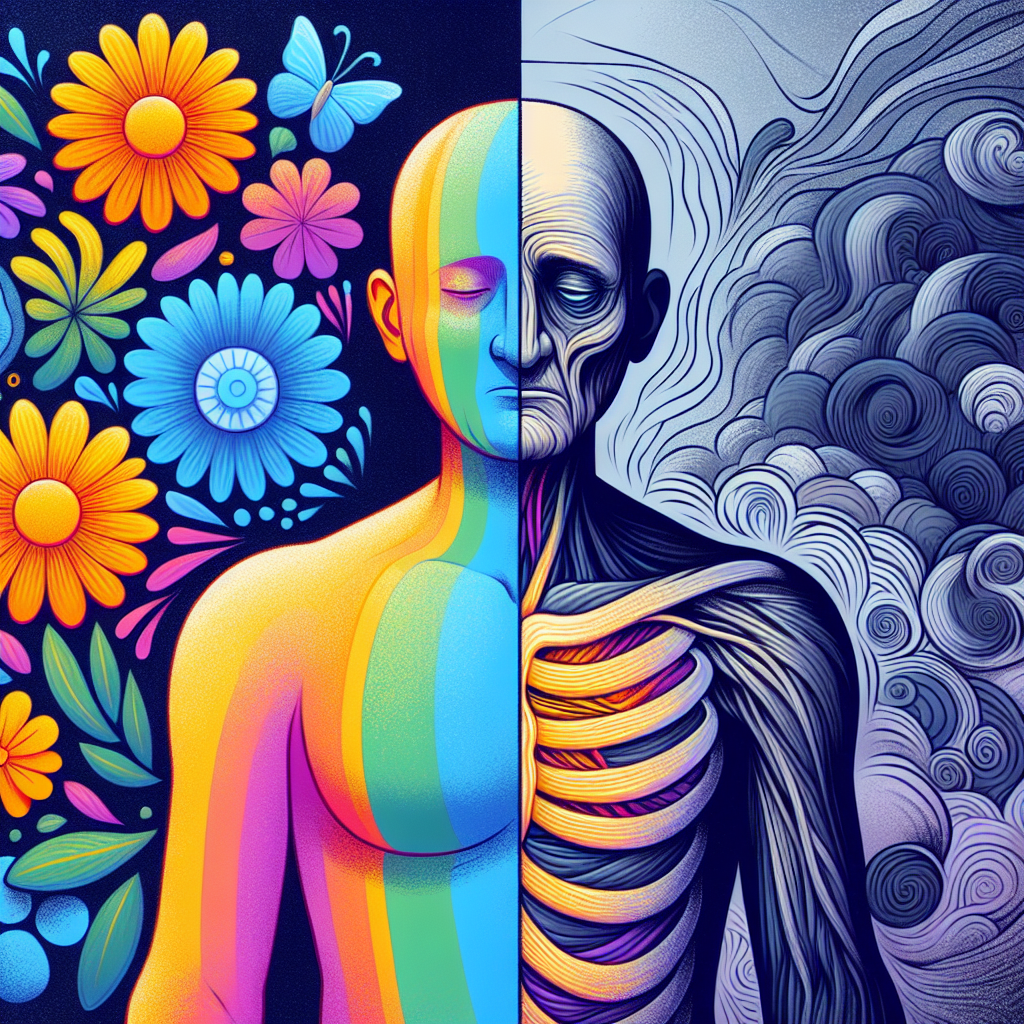The Danger of Imbalanced Hormones

Don’t ignore the danger of imbalanced hormones! Learn more about the risks and how to maintain hormonal balance for a healthier life. Visit My Vibrant Vitality today.
Understanding the Health Risks of Imbalanced Hormones
The human body is a complex system of interconnected parts, each playing a crucial role in maintaining overall health and well-being. One such system that plays a pivotal role in our body’s functioning is the endocrine system, responsible for producing and regulating hormones. These hormones act as chemical messengers, controlling and coordinating activities throughout the body. However, when these hormones become imbalanced, it can lead to a myriad of health issues, some of which can be quite severe.
Hormonal imbalances occur when there is too much or too little of a hormone in the bloodstream. Because of their essential role in the body, even small hormonal imbalances can cause side effects throughout the body. Hormones help to regulate our mood, growth and development, metabolism, sexual function, and reproduction. Therefore, an imbalance can disrupt these processes, leading to a variety of symptoms and health risks.
One of the most common health risks associated with hormonal imbalances is weight gain. Hormones play a significant role in regulating our appetite and metabolism. When these hormones are out of balance, it can lead to increased hunger, slow metabolism, and ultimately, weight gain. This can increase the risk of obesity, which is a major risk factor for several serious health conditions, including heart disease, diabetes, and certain types of cancer.
Another health risk associated with hormonal imbalances is mental health disorders. Hormones such as serotonin and dopamine play a crucial role in regulating our mood and emotions. When these hormones are imbalanced, it can lead to mood swings, anxiety, depression, and other mental health issues. Moreover, chronic stress can lead to an overproduction of the hormone cortisol, which can further exacerbate these mental health issues.
Hormonal imbalances can also lead to reproductive health issues in both men and women. In women, imbalances in hormones such as estrogen and progesterone can lead to irregular menstrual cycles, fertility issues, and menopausal symptoms. In men, imbalances in testosterone can lead to erectile dysfunction, reduced libido, and fertility issues.
Furthermore, hormonal imbalances can also affect bone health. Hormones such as parathyroid hormone and calcitonin play a crucial role in regulating bone growth and density. When these hormones are imbalanced, it can lead to decreased bone density, increasing the risk of osteoporosis and fractures.
In addition to these health risks, hormonal imbalances can also lead to a variety of other symptoms, including fatigue, insomnia, skin problems, and changes in heart rate. Therefore, it is crucial to recognize the signs of hormonal imbalances and seek medical attention if you suspect that you may be experiencing one.
In conclusion, the danger of imbalanced hormones should not be underestimated. They play a crucial role in our body’s functioning, and when they are out of balance, it can lead to a myriad of health issues. Therefore, maintaining hormonal balance is essential for overall health and well-being. If you suspect that you may have a hormonal imbalance, it is important to seek medical attention. With the right treatment and lifestyle changes, it is possible to restore hormonal balance and reduce the associated health risks.
The Impact of Hormonal Imbalance on Mental Health

The danger of imbalanced hormones is a topic that is often overlooked, yet it plays a significant role in our overall health and well-being. Hormones are chemical messengers that regulate numerous bodily functions, including growth, metabolism, and reproduction. However, when these hormones are out of balance, it can lead to a myriad of health issues, including mental health disorders.
Hormonal imbalance is not a rare occurrence. It can be triggered by a variety of factors such as stress, poor diet, lack of exercise, and certain medical conditions. When the body’s delicate hormonal balance is disrupted, it can have profound effects on an individual’s mental health.
One of the most common mental health issues linked to hormonal imbalance is depression. Research has shown a strong correlation between hormonal fluctuations and depressive symptoms. For instance, women are twice as likely as men to experience depression, a disparity that is largely attributed to hormonal changes associated with menstrual cycles, pregnancy, and menopause. During these periods, levels of estrogen and progesterone, hormones that have a significant impact on mood regulation, fluctuate dramatically, often leading to mood swings, anxiety, and depression.
Similarly, the hormone cortisol, often referred to as the ‘stress hormone’, can also have a significant impact on mental health when its levels are imbalanced. Under normal circumstances, cortisol helps the body respond to stress effectively. However, chronic stress can lead to persistently high levels of cortisol, which has been linked to mental health disorders such as depression and anxiety.
Thyroid hormones also play a crucial role in mental health. The thyroid gland produces hormones that regulate the body’s metabolism. When the thyroid produces too much or too little of these hormones, it can lead to conditions known as hyperthyroidism and hypothyroidism, respectively. Both conditions have been associated with mental health issues. Hyperthyroidism can cause symptoms such as anxiety, restlessness, and irritability, while hypothyroidism can lead to depression and memory problems.
The relationship between hormonal imbalance and mental health is not just a one-way street. Mental health disorders can also lead to hormonal imbalances. For instance, chronic stress and anxiety can disrupt the balance of hormones in the body, leading to a variety of physical health issues. This highlights the intricate interplay between our physical and mental health.
The good news is that hormonal imbalances can often be corrected with lifestyle changes and medical treatment. Regular exercise, a balanced diet, adequate sleep, and stress management techniques can all help to maintain hormonal balance. In some cases, hormone replacement therapy may be recommended.
In conclusion, the danger of imbalanced hormones extends far beyond physical health issues. It can have a profound impact on mental health, leading to conditions such as depression and anxiety. Understanding the link between hormonal imbalance and mental health is crucial for prevention and treatment. It underscores the importance of maintaining a healthy lifestyle and seeking medical help when necessary. It also highlights the need for further research in this area to fully understand the complex relationship between our hormones and our mental health.
How Imbalanced Hormones Can Lead to Chronic Diseases
The human body is a complex system of interconnected parts, each playing a crucial role in maintaining overall health and well-being. Among these, hormones, the body’s chemical messengers, play a pivotal role in regulating various bodily functions, from growth and development to mood and metabolism. However, when these hormones become imbalanced, it can lead to a host of health problems, including chronic diseases.
Hormones are produced by the endocrine system, which includes glands such as the pituitary, thyroid, adrenal, pancreas, and ovaries or testes. These hormones are released into the bloodstream and transported to various tissues and organs, where they bind to specific receptors and trigger certain biological responses. However, when the production or release of these hormones is disrupted, it can result in hormonal imbalances.
Hormonal imbalances can occur due to a variety of factors, including stress, poor diet, lack of exercise, environmental toxins, and certain medical conditions. These imbalances can manifest in a variety of symptoms, such as fatigue, mood swings, weight gain or loss, sleep disturbances, and changes in appetite or sex drive. However, if left unchecked, these imbalances can lead to more serious health problems, including chronic diseases.
One of the most common chronic diseases associated with hormonal imbalances is diabetes. Diabetes is a condition characterized by high blood sugar levels, which can result from the body’s inability to produce enough insulin, a hormone that regulates blood sugar, or the body’s inability to use insulin effectively. Over time, high blood sugar levels can damage various organs and tissues, leading to complications such as heart disease, kidney disease, and nerve damage.
Another chronic disease linked to hormonal imbalances is hypothyroidism, a condition in which the thyroid gland does not produce enough thyroid hormones. These hormones are essential for regulating the body’s metabolism, and a deficiency can lead to symptoms such as fatigue, weight gain, depression, and constipation. If left untreated, hypothyroidism can lead to serious complications, including heart disease and infertility.
Hormonal imbalances can also increase the risk of certain types of cancer. For instance, an excess of estrogen, a hormone that promotes cell growth, can stimulate the growth of certain types of breast cancer cells. Similarly, an excess of androgens, a group of hormones that includes testosterone, can stimulate the growth of certain types of prostate cancer cells.
In conclusion, hormonal imbalances can have far-reaching effects on the body, leading to a host of health problems, including chronic diseases. Therefore, it is crucial to maintain hormonal balance to ensure overall health and well-being. This can be achieved through a healthy lifestyle, including a balanced diet, regular exercise, stress management, and avoidance of environmental toxins. Additionally, regular check-ups and screenings can help detect hormonal imbalances early and prevent the development of chronic diseases.